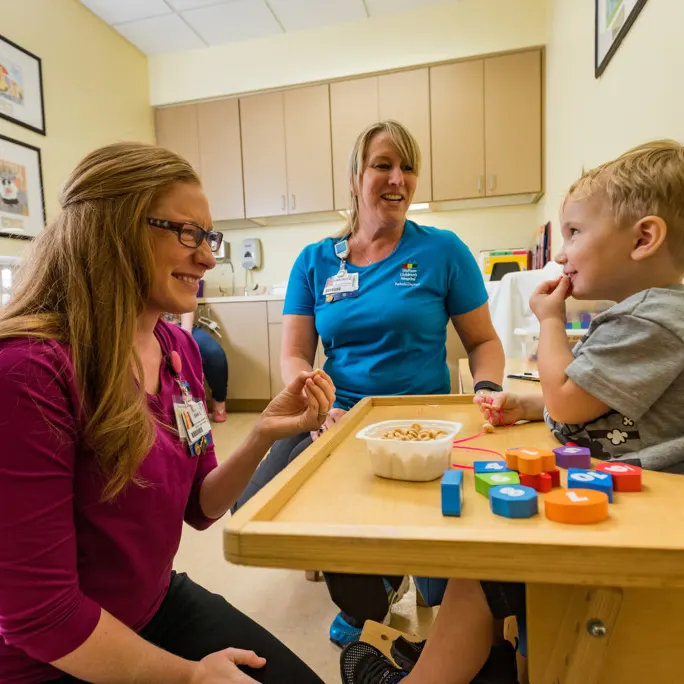How a Speech Pathologist Supports Develop Communication Skills
How a Speech Pathologist Supports Develop Communication Skills
Blog Article
How a Speech Pathologist Can Assist Improve Interaction Skills
Effective interaction is a keystone of professional and individual success, yet lots of individuals encounter challenges that prevent their capacity to share themselves clearly. A speech pathologist is outfitted to deal with these barriers with targeted evaluation and intervention methods customized to each person's needs. By employing evidence-based healing methods, they not just function to improve speech and language problems however also boost overall communicative capability. Understanding the multifaceted role of a speech pathologist exposes exactly how their expertise can change lives, welcoming a more detailed exam of the particular methods and outcomes connected with their method.
Recognizing Communication Problems
Understanding interaction disorders is necessary for acknowledging exactly how they influence individuals' ability to share themselves and engage with others. Communication problems encompass a broad array of problems that impact speech, language, and social interaction, frequently impeding reliable communication. These problems can emerge from numerous aspects, including neurological conditions, developmental delays, physical problems, or mental concerns.
Speech disorders might materialize as difficulties in expression, voice, or fluency production, affecting how words are obvious or talked. Language disorders, on the other hand, entail difficulties in understanding or utilizing language, which can hinder both verbal and non-verbal interaction. Social interaction disorders are identified by troubles in the pragmatic aspects of interaction, such as taking kip down discussion or understanding social signs.
The consequences of communication conditions are extensive, affecting not just the individual's capacity to share thoughts and feelings but likewise their social relationships, instructional opportunities, and overall quality of life. Awareness of these conditions can promote empathy and assistance, motivating reliable approaches for interaction and engagement. Recognizing the complexities of interaction problems is a critical step in the direction of advertising inclusivity and attending to the requirements of those impacted.
Function of a Speech Pathologist
Speech pathologists frequently play a crucial role in diagnosing and dealing with communication problems, utilizing a series of evidence-based techniques customized to each person's demands. These professionals collaborate with individuals across the life expectancy, from children with speech hold-ups to grownups recouping from strokes or stressful brain injuries. Their knowledge includes a selection of interaction problems, consisting of expression, language, voice, and fluency conditions.
In therapeutic settings, speech pathologists utilize structured interventions developed to enhance communication skills. They may implement techniques such as speech workouts, language games, and social interaction training to promote improvements in responsive and meaningful language abilities. Speech Pathologist. In addition, they inform clients and their families about effective interaction methods and adaptive techniques to browse day-to-day interactions
Beyond straight therapy, speech pathologists collaborate with other health care caregivers, specialists, and teachers to ensure a detailed method to treatment. They promote for customers by giving resources and support, enabling individuals to attain their communication objectives and enhance their general lifestyle. As specialists in the field, speech pathologists are important in promoting reliable communication, advertising freedom, and improving social participation for those with communication obstacles.
Assessment and Medical Diagnosis Process
The evaluation and diagnosis procedure performed by speech pathologists normally involves a comprehensive analysis to recognize interaction disorders properly. This procedure starts with a detailed case background, where the medical professional collects pertinent details about the individual's clinical, educational, and developmental background. Comprehending the context of the individual's communication difficulties is necessary for a precise medical diagnosis.
Adhering to the medical history, speech pathologists use standard tests and casual evaluations to review numerous aspects of interaction, consisting of speech audio production, language comprehension, meaningful language, and social interaction abilities. These analyses are tailored to the individual's age and certain worries, giving beneficial information for analysis.
Observation is additionally an important part of the assessment procedure, as it enables the medical professional to see firsthand exactly how the specific connects in all-natural settings. In addition, meetings with family participants and instructors can offer understanding into the individual's communication challenges across different atmospheres.
As soon as the analysis is full, the speech pathologist synthesizes the findings to identify a diagnosis and recommend suitable interventions. This extensive evaluation process makes sure that individuals get targeted assistance customized to their distinct communication demands, laying the foundation for reliable healing methods.
Healing Strategies and Techniques
Numerous restorative techniques and strategies are employed by speech pathologists to deal with a range of communication problems successfully. One extensively used technique is articulation therapy, which concentrates on fixing speech seems through repeating and aesthetic signs. This technique is particularly valuable for people with speech audio conditions.
An additional effective technique is language treatment, which boosts both receptive and expressive language abilities. This may include interactive tasks that advertise vocabulary advancement, sentence framework understanding, and conversational skills. Additionally, speech pathologists usually use social abilities training to boost practical language capabilities, making it possible for individuals to navigate social communications extra effectively.
Fluency shaping and stuttering modification methods are specifically made to assist those experiencing fluency conditions. These strategies assist clients create smoother speech patterns and handle the physical and emotional elements of stuttering.
Additionally, different and augmentative communication (AAC) systems are utilized for people with serious interaction impairments. These systems, which can include gestures, icons, or electronic tools, offer vital assistance for effective communication.
Benefits of Speech Therapy

In addition, speech therapy can help in creating vital listening and comprehension skills, promoting better interaction in discussions. People with cognitive-communication problems can additionally profit, as therapy concentrates on reinforcing memory and analytical capabilities, important for reliable communication.
One more essential facet is the emotional support supplied throughout therapy sessions. Speech pathologists develop a safe environment, motivating patients to get over stress and anxiety and aggravation pertaining to their interaction concerns. This assistance can bring about enhanced self-worth and total mental wellness.
In addition, very early intervention via speech therapy can prevent more complications, guaranteeing that individuals reach their complete communicative capacity. Generally, the benefits of speech treatment prolong beyond plain speech enhancement, favorably impacting numerous measurements of life for those influenced by interaction difficulties.
Final Thought
In recap, speech pathologists play an important role in addressing interaction conditions with analysis, medical get redirected here diagnosis, and tailored healing interventions. By employing evidence-based strategies, these specialists improve people' speech and language capabilities, cultivating boosted clearness, fluency, and social interaction skills. The advantages of early intervention highlight the importance of looking for help from speech pathologists, as their experience can substantially enhance communicative possibility, ultimately resulting in better success in both individual and expert rounds.

Speech pathologists regularly play an essential role in detecting and treating communication problems, using a range of evidence-based techniques tailored to each individual's requirements. As experts in the field, speech pathologists are important in fostering effective interaction, advertising independence, and boosting social involvement for those with communication obstacles.

Report this page